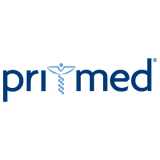Did you mean: Cultural address ?
Cultural Competency: Providing Meaningful Care to a Diverse Patient Population

We all possess innate biases that may cause us to treat patients differently without us even being aware of it. At the end of this course, you should be able to take a second look at instances in your patient interactions that might cause misunderstandings.
Category
- Cultural Competency
Format
- Self-study / Enduring
Credits
- 0.50 AMA PRA Category 1 Credit™
Implicit Bias

This module provides an overview of implicit bias, and how it is manifested in everyday clinical decision-making. Viewers will learn about the underlying psychology and neuroscience of implicit associations, and assess their own biases to increase self-awareness.
Category
- Implicit Bias
Format
- Self-study / Enduring
Credits
- 1.50 AMA PRA Category 1 Credit™
Pain Management Pearls: Opioids and Culture

Pain affects all domains of life, and clinicians have few effective tools at their disposal to help these patients. Opioids remain the strongest group of analgesic drugs available.
Category
- Pharmacology
- Pain Management: Opioid(s)
Format
- Self-study / Enduring
Credits
- 2.00 AMA PRA Category 1 Credit™
- 2.00 ANCC
A Physician’s Practical Guide to Culturally Competent Care

As healthcare disparities among cultural minority groups persist in our country, culturally and linguistically appropriate services (CLAS) are increasingly recognized as an important strategy for improving quality of care to diverse populations.
Category
- Cultural Competency
Format
- Self-study / Enduring
Credits
- 9.00 AANP Contact Hours
- 9.00 AAPA Category I CME
- 9.00 AMA PRA Category 1 Credit™
Bridging the Gap: Emotional and Cultural Intelligence in Clinical Practice

The most productive companies in the world stress the importance of both emotional and cultural intelligence in their leaders. We will look at applying these principles to patient care as a way to improve adherence, quality outcomes, and clinician success. The key is self-awareness.
Category
- Cultural Competency
Format
- Self-study / Enduring
Credits
- 1.00 AANP Contact Hours
- 1.00 AMA PRA Category 1 Credit™
Gender Affirming Care 101: Providing Hormone Therapy

This module reviews important terminology, addresses medical biases, and identifies best practices for serving transgender and nonbinary patients.
Category
- LGBTQ
Format
- Self-study / Enduring
Credits
- 2.00 AMA PRA Category 1 Credit™
TeleMental Health Crisis Management

This course reduces risk and provides education and competency to meet regulatory and licensure requirements for practitioners providing telemental health services to patients who may have a crisis at a distance.
Category
Format
- Self-study / Enduring
Credits
- 1.75 AMA PRA Category 1 Credit™
Telehealth Crisis Management

This course reduces risk and provides education and competency to meet regulatory and licensure requirements for practitioners providing Telehealth services to patients who may have a crisis at a distance.
Category
Format
- Self-study / Enduring
Credits
- 1.75 AMA PRA Category 1 Credit™
Implicit Bias: The Michigan Requirement

The role of implicit biases on healthcare outcomes has become a concern as some cite that implicit biases contribute to health disparities, professionals' attitudes toward and interactions with patients, quality of care, diagnoses, and treatment decisions.
Category
- Implicit Bias
Format
- Self-study / Enduring
Credits
- 2.00 AMA PRA Category 1 Credit™
- 2.00 ANCC
- 2.00 Association of Social Work Boards (ASWB)
Medical Ethics for Physicians

Medical ethics, also known as bioethics, is an amalgam of medicine, law, and religion. It is also influenced by cultural beliefs. In this course, we will define the most common ethical principles and note their relationship to the basic theories of ethics.
Category
- Medical Ethics
Format
- Self-study / Enduring
Credits
- 5.00 AMA PRA Category 1 Credit™

 Facebook
Facebook Twitter
Twitter LinkedIn
LinkedIn Forward
Forward